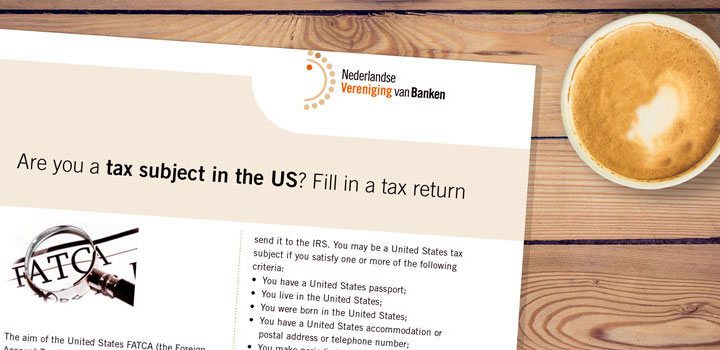
The Economist: EU resident wants to repeal FATCA

EU resident wants to repeal FATCA according to The Economist America’s tax compliance law FATCA challenged: A European resident seeks to use data-privacy laws to stop the transfer of financial data.
FATCA (Foreign Account Tax Compliance Act) was passed by America’s Congress in 2010. The law was designed to stop Americans from stashing money abroad to evade tax and ushered in a global revolution in financial transparency.
It forced banks worldwide to start sharing, via their tax agencies, information on clients with links to America. And it spawned the Common Reporting Standard (CRS), whereby over 100 countries swap data with each other to discourage cross-border tax dodging.
9 million US persons living abroad
Sifting clients for “us persons” has given financial firms a compliance problem. Some have refused to serve Americans living overseas for fear of fines under FATCA’s draconian provisions.
Many of the 9 million Americans based abroad—including “accidental Americans” who have spent most of their lives elsewhere but face tax liabilities in America because they were born there, making them citizens—have formed groups to lobby for less brutal tax treatment.
Some critics go further, arguing that FATCA and the CRS have swung too far towards transparency and away from privacy. And they see the potential for redress in the European Union’s data protection laws.
Breach of General Data Protection Regulation?
A woman known only as Jenny is trying to raise £50,000 to challenge the right of HMRC, Britain’s tax authority, to pass her information on to America’s Internal Revenue Service (IRS).
Jenny, a university researcher born in America but resident in Britain for nearly 20 years, claims the transfer breaches her rights under the EU’s General Data Protection Regulation of 2016. She argues that her information is irrelevant to FATCA’s goal—to catch tax evaders—because she earns less than $104,000 and thus qualifies for an income-tax exemption under American tax rules. This could be a reason to repeal the FATCA
EU resident wants to repeal FATCA
She is not the first to challenge FATCA. A group of accidental Americans brought a case in France to repeal FATCA, but it was dismissed. An anti-FATCA lawsuit in America, backed by Rand Paul, a Republican senator, was tossed out in 2017 on the ground that America’s constitution provides no expectation of privacy regarding financial records.
America’s data-protection standards are significantly lower than Europe’s. The French case focused on lack of reciprocity, not data privacy; America has been slow to share information on its own banks’ foreign clients. The EU’s executive, parliament and data-protection authorities have all expressed queasiness over FATCA.
Officials in America and at the OECD, a club of 36 countries that oversees the CRS, brush off concerns that information-sharing might undermine data security. Jenny’s claim is an important test case that, if successful, could spawn others.
Anti-corruption campaigners pooh-pooh such efforts, which they view as doomed rearguard actions by a tax-averse elite. But the efforts to repeal FATCA are more than just minimizing tax bills.
Americans Overseas can help you with America’s tax compliance law
We, the founders of Americans Overseas, were born in the Netherlands and obtained our American nationality through our (American) mother.
When we heard about the US tax system for the first time around 2013, we were in total disbelief (it can’t be true!), anger (how can they do this?), fear (am I going to get fined or pick up other problems?), and panic (what should I do?). It is (unfortunately) true that there is an additional American tax levy. But there’s no information from the local government, and when approached, the consulate referred us to the IRS, and the IRS was impenetrable.
That’s why we started this initiative to help people from all over the world by providing proper information about the US tax system to avoid unnecessary panic and offering help free of obligation and free of charge. If needed, we have a network of affordable professionals (accountants) who can help you with your tax obligations.
If you have more questions about the new relief program for America’s tax compliance law you can contact us at Americans Overseas.
Contact us for more information
Source: The Economist
Frequently asked questions
Understanding the US tax system, the obligations, and all the additional terms can be difficult. Especially if one lives outside of America. Is your question not answered? Contact us.
-
Who is required to file taxes in the US?
U.S. citizens and resident aliens who live abroad are generally required to file a federal income tax return and pay taxes on their worldwide income.
Read more... about Who is required to file taxes in the US? -
Do US citizens living abroad still have to file taxes in the US?
Yes, US citizens are required to file taxes on their worldwide income, regardless of where they are living.
Read more... about Do US citizens living abroad still have to file taxes in the US? -
How can I cash my US check?
Received an American check? You can cash your check in the following ways: cash the check at your own bank, transfer to another person (endorsement), cash checks using an online service or cash the check by another bank.
Read more... about How can I cash my US check? -
Are there any special tax forms required for US citizens living abroad?
US citizens living abroad may be required to file Form 2555 and/or Form 1116 to claim the foreign-earned income exclusion.
Read more... about Are there any special tax forms required for US citizens living abroad? -
What is FBAR filing?
FBAR (Foreign Bank Account Report) filing is the requirement for certain U.S. individuals and entities to report their foreign financial accounts to the Financial Crimes Enforcement Network (FinCEN) of the U.S. Department of Treasury. The FBAR filing requirement applies to U.S. persons who have a financial interest in, or signature authority over, one or more foreign financial accounts if the aggregate value of those accounts exceeds $10,000 at any time during the calendar year.
Read more... about What is FBAR filing?




